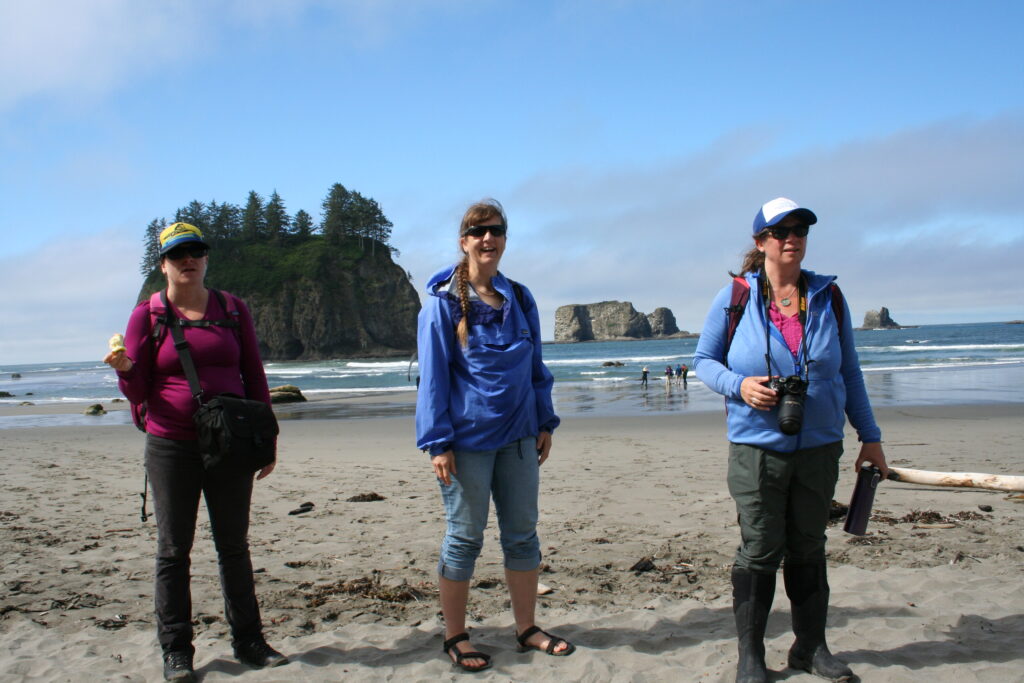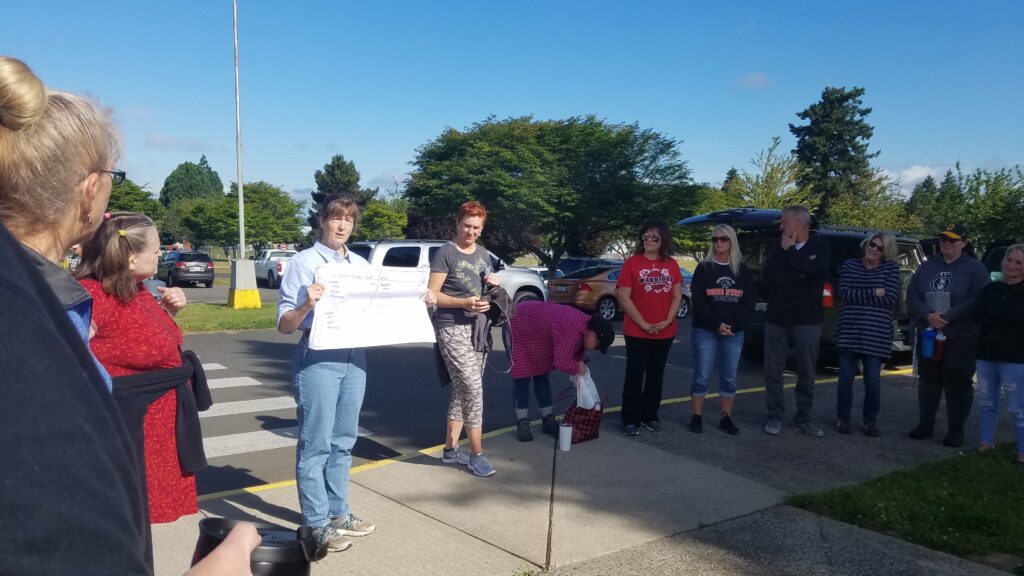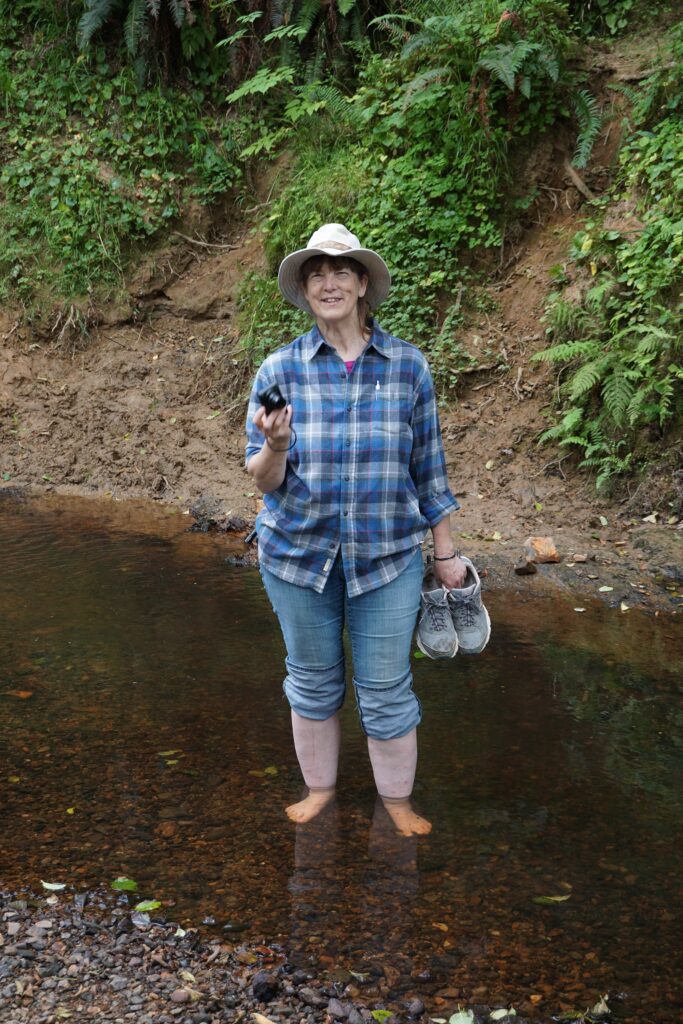The Olympic Peninsula is home to some of the most remote school districts in Washington State, meaning teachers who want to improve their practice often have to travel up to four hours to attend professional workshops. Fortunately, for the past eight years, they’ve have had the advantage of an exceptional guide and mentor delivering training opportunities to their doorsteps: PEI’s Coastal FieldSTEM Coordinator Julie Tennis. As 2022 draws to a close, Tennis is moving on from PEI to pursue other passions, but her impact will remain in classrooms throughout the region.

Jody Cook, an 8th-grade science teacher at Forks Middle School, first remembers ‘clicking’ with Tennis over the subject of science notebooks during a workshop on aligning curriculum to Next Generation Science Standards (NGSS). The two became friends, with Tennis staying at Cook’s house every time she was in Forks to do a workshop and connecting for camping trips over the years.
“She has had a profound positive impact on my practice,” says Cook. “I am a different and better teacher having been able to work and collaborate with her.” She credits Tennis and PEI with providing strategies to reach more students and make content richer by incorporating writing and drawing, in addition to bringing in community connections.
“Julie has had a profound positive impact on my practice. I am a different and better teacher having been able to work and collaborate with her.”
— Jody Cook, Forks Middle School Science Teacher
In her previous role as Education and Outreach Specialist at Olympic Coast National Marine Sanctuary, Nicole Harris co-facilitated multiple Ocean Science workshops with Tennis over the years. Harris, now a Water, Fish & Wildlife Specialist with the nonprofit Futurewise, says Tennis made outdoor-based science accessible for educators. “Julie removed this barrier that it couldn’t be for everybody,” says Harris. “She brings her authentic self to whatever she does and that allows teachers to feel connected to her.”
A moment from one of those four-day Ocean Science workshops stands out for Harris. Typically, they involved visiting several beaches and then returning to a home base, in this case at Olympic Natural Resources Center in Forks, to process what they were learning. Tennis was leading a session focused on claim, evidence and reasoning.
“I’ve never seen a room of more engaged teachers,” Harris recalls. “Julie has mad organizational skills, and part

of that is she likes to stay on time. I don’t think she could have guessed that this would be such a popular activity and toward the end of her allotted 30 minutes, I could read her face, thinking, ‘We’ve got to wrap this up.’ But she was able to relinquish the schedule and enjoy the moment with the teachers. In the end we only added around ten minutes of this raucous discussion and the teachers were very satisfied. I guarantee they used that activity with their students.”
After retiring from a career as a high school science teacher in the Quillayute Valley School District, John Hunter was excited to think he would be working with Tennis when he subsequently joined PEI as a FieldSTEM Coordinator. He had attended many of her workshops and the two had bonded over a mutual interest in solitary native bees.
Instead, he learned that he would be taking her place. “I emailed her saying, ‘I was so looking forward to being in the same organization as you,’” says Hunter. “Even though she’ll still be around, she will certainly be missed. I’ve got some big shoes to fill.”
